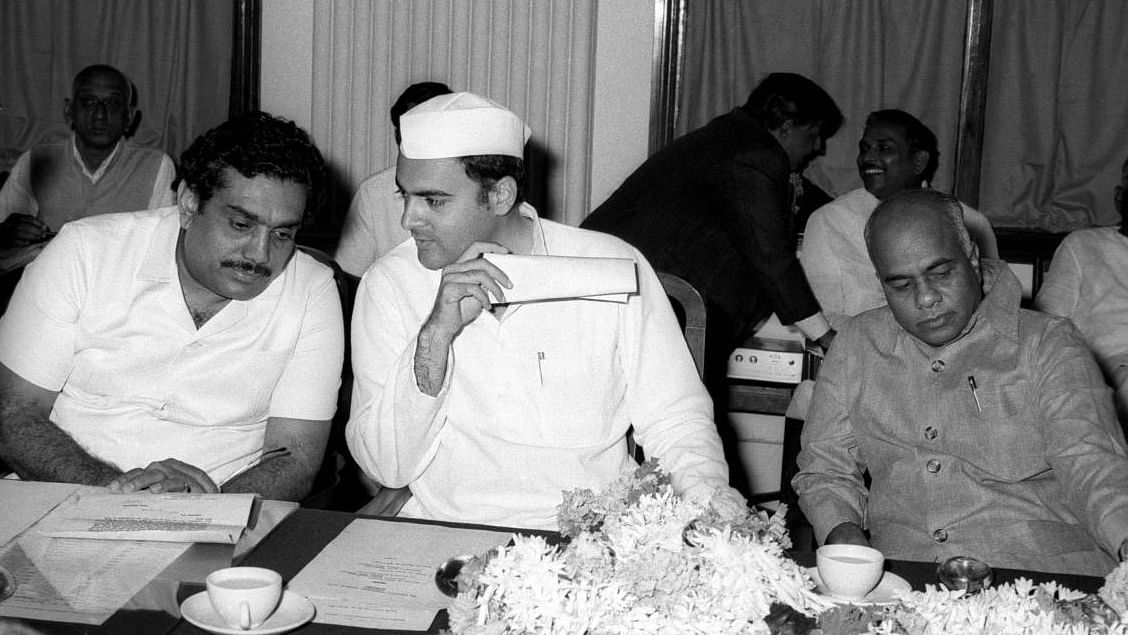
It was a speech smacking of audacity. More so because it was made before eminent jurist Nani Palkhivala, whose lectures shredding the union budget of Congress governments and disparaging remarks on politicians were legendary.
The man presiding over the event in Bangalore, Karnataka’s chief minister R Gundu Rao ensured that some home truths were delivered to Palkhivala about issues that confront a politician.
Every day, even before an elected representative can sip his morning coffee, people line up at his door. Grievances range from not getting work done (genuine and otherwise) at government offices to seeking money for their daughter’s wedding. Dealing with such a gamut of issues required special skills. After all, politicians had to go to the people every five years, unlike professionals like Palkhivala, he said.
Gundu Rao was not a brilliant speaker. He was blunt about lessons learnt the hard way since becoming the youngest CM of Karnataka at 43. The speech was appreciated by admirers of Palkhivala.
He always said he got the seat because Indira Gandhi chose him over his predecessor Urs. “After Madam won Chikmagalur by-election to Lok Sabha, Urs presumed it was because of him. She won because she was the party,” he had privately told this reporter years later.
For the self-professed man of action, his tenure of 27 months was marked by unimagined change. To begin with, the 84 MLAs who had joined Congress (I) to make him CM were told that defection (from Congress-Urs) was not a visa to the ministry. They were even denied posts in various boards and corporations. Legislators could no longer meet officials at will.
He ignored Urs’s golden rule: That spoils need to be shared to keep legislators content by providing them levers to power, peddle influence and, of course, earn some money on the side.
‘File clearance’ became the sole purpose of the government, not understanding issues and solving problems. Some files moved faster than others. Those included the diversion of 4,000 tonnes of cement (then a controlled commodity) meant for irrigation to builders - the cement scandal; initial high rates for sales of forest produce (to industries) later drastically cut - forest rates scandal; a similar strategy for minimum wages of beedi workers. Then there was also the alter ego of Gundu Rao, MP FM Khan, whom officers were too scared to fend off.
Parallelly, officials were told to collect betterment arrears from farmers who benefited from irrigation. Harsh implementation led to farmers lynching officials. Many farmers were killed in the agitation, leading to the rise of the latent farmers’ movement led by a frail-looking tough-talking Professor of Law, MD Nanjundaswamy.
His government also imposed Sanskrit as the first language, removing Kannada and Hindi, leading to a pro-Kannada agitation. “It was sheer lack of application of mind,” a senior minister had told this reporter then.
His brashness was most evident when his henchmen laid siege to the offices of Deccan Herald and Indian Express because they had reported that Dalit protestors had thrown a chappal at his Mangalore rally. This reporter had woken up 24 of the 28 Congress MPs on the night of September 22, 1980, to complain. Five of them called on PM Indira Gandhi to convey their shock. Indira Gandhi called Governor Govind Narain by 7:30 AM and the then police commissioner BN Garudachar was directed to get the gates of the newspapers unlocked.
Another instance of thoughtless decision-making led to 387 deaths in the illicit liquor tragedy in Bangalore and neighbouring districts. The death toll was a world record then and Karnataka hit global headlines.
The first indication of people preferring an alternative came during a football match in Bangalore when Urs entered the stadium late to a standing ovation. Till then, Urs had withdrawn from the limelight after being verbally humiliated by Gundu Rao and Khan. “It sent shivers down the spine (of the ruling dispensation),” a senior state intelligence officer had told this reporter.
Urs suddenly passed away in June 1982. The line to defeat was clearly written for the Congress, but there was no hope for the divided Opposition. Or so it seemed till the state saw Election 1983.
(The author is a senior journalist based in Bengaluru)